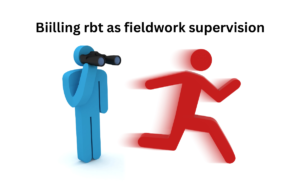A real estate contract is a legally binding document that outlines the terms and conditions of a real estate transaction between two or more parties, involving a buyer and a seller. It includes key information such as the purchase price, property details, financing terms, and any contingencies that may apply to the deal. This agreement serves as the foundation for the sale or transfer of property, ensuring that all involved parties clearly understand their obligations and rights. Without a real estate contract, there would be ambiguity, leading to potential legal disputes. Its primary importance lies in preventing misunderstandings by clearly defining the expectations of both parties, thereby providing legal recourse in case of disputes.
What are the Key Elements of a Real Estate Contract?
A real estate contract includes several essential elements that protect both the buyer and seller. These elements include the property description, identifying the legal boundaries and location; the purchase price; and the terms of financing if applicable. Contingencies, home inspections and financing, allow either party to exit the contract if certain conditions are not met. Earnest money deposits, which are typically held in escrow, ensure that the buyer is serious about the purchase. Finally, the contract will stipulate important dates, such as closing, and outline any necessary disclosures, such as the property’s condition and any known issues.
How Do Contingencies Work in Real Estate Contracts?
Contingencies are clauses within a real estate contract that must be fulfilled for the transaction to proceed. Common contingencies include inspection, financing, and appraisal clauses. For example, an inspection contingency allows the buyer to renegotiate or back out of the deal if significant issues are found during the property inspection. A financing contingency protects the buyer if they are unable to secure a mortgage loan, while an appraisal contingency ensures that the property is valued at or above the purchase price, protecting the lender’s interest. Contingencies are crucial because they provide a safety net for both the buyer and the seller, ensuring that the transaction is fair and transparent.
What are the Different Types of Real Estate Contracts?
Real estate contracts come in several types, each designed for specific transactions. The most common is the Purchase Agreement, which outlines the terms for buying or selling property. It includes the purchase price, closing date, and any contingencies like financing or inspections. Variations of purchase agreements include State/Association Purchase Agreements for transactions involving real estate agents and Property-Specific Agreements for non-traditional properties like vacant land or mobile homes.
Type is the Real Estate Assignment Contract, used mainly in wholesale real estate. This allows a buyer to assign their purchase rights to a third party before closing. There’s also the Lease Agreement, which governs the rental terms between landlords and tenants, including rent, lease duration, and responsibilities. The Power of Attorney contract allows another person to act on behalf of a property owner when they cannot physically sign the documents.
How is a Real Estate Contract Negotiated?
Negotiating a real estate contract is a critical part of the transaction, ensuring that both buyer and seller agree on key terms. The process often starts with the buyer submitting an offer, which may include contingencies like financing, inspection results, or repairs. The seller can accept, reject, or make a counteroffer. It is important to focus on the most vital terms like price, closing date, and any conditions under which the contract can be cancelled without penalties.
A skilled negotiator, such as a real estate agent or attorney, can play a crucial role in these discussions, balancing the needs of both parties while aiming for a mutually beneficial agreement. The objective is to protect both parties’ interests while ensuring the transaction proceeds smoothly.
What Happens When a Real Estate Contract is Breached?
A breach of contract occurs when one party fails to meet their obligations outlined in the real estate contract. Common breaches include failure to provide the agreed-upon financing, missing deadlines for inspections, or refusing to transfer property ownership. In such cases, the non-breaching party may have several remedies. These can include seeking financial damages, cancelling the contract, or enforcing the contract terms through legal action.
For example, if a buyer fails to secure financing by the deadline, the seller may cancel the deal and keep the buyer’s earnest money deposit. If the seller fails to deliver a clear title to the property, the buyer may choose to back out without penalty.
What is an Earnest Money Deposit in Real Estate Contracts?
An earnest money deposit (EMD) is a sum of money a buyer offers to a seller to demonstrate good faith in a real estate transaction. It shows the seller that the buyer is serious about purchasing the property and is willing to offer financial collateral while the deal progresses. The EMD is typically deposited into an escrow account after both parties sign the purchase agreement. The amount of the deposit can vary, often ranging from 1% to 3% of the home’s purchase price, but it may be higher in competitive markets.
This deposit can later be applied to the buyers closing costs or down payment, but if the buyer fails to meet contract terms without a valid reason, the seller may be entitled to keep the earnest money. Common contingencies that protect the buyer include home inspections, appraisals, and financing approvals. If these conditions are not met, the buyer typically receives the deposit back.
How Do Financing Clauses Impact Real Estate Contracts?
Financing clauses, also known as mortgage contingencies, are crucial to protecting buyers in real estate contracts. These clauses allow the buyer to back out of the deal if they are unable to secure financing for the property. This is especially important since the purchase is often contingent upon the buyer obtaining a mortgage. The financing clause outlines the specific conditions under which the buyer can withdraw from the contract and reclaim their earnest money deposit.
Without this contingency, a buyer might be forced to complete the transaction even if their loan application is denied, which could lead to financial strain. Including a financing clause not only safeguards the buyer but also helps maintain the transparency of the transaction, ensuring both parties have a clear understanding of the financial responsibilities.
What is the Process for Amending a Real Estate Contract?
Amending a real estate contract becomes necessary when both parties agree to make changes to the initial terms of the agreement. These amendments could involve adjustments to the purchase price, closing date, or contingencies based on inspections or financing issues. All amendments must be agreed upon by both the buyer and seller and documented in writing to ensure that the new terms are legally binding.
The process usually starts with a formal written request, often initiated by the buyer or their agent, followed by negotiations. An agreement is reached, both parties sign the amendment, and the document becomes part of the original contract. This process helps prevent misunderstandings and ensures that all changes are properly recorded and enforceable
What is the Role of Legal Representation in Real Estate Contracts?
Legal representation plays a critical role in real estate transactions, providing both buyers and sellers with protection throughout the process. While real estate agents handle much of the negotiation, only a licensed attorney can offer legal advice regarding the contract terms. In many states, attorneys review purchase agreements, ensure that contingencies are fair, and address any potential legal risks related to the property or the transaction itself.
Buyers, in particular, benefit from legal counsel, as they often lack the same protections sellers have through their listing agents and brokerage firms. Attorneys ensure that buyers fully understand all aspects of the contract, including title searches, zoning laws, and potential liabilities. Engaging legal representation early in the process can prevent costly mistakes and provide a clear path to resolution if issues arise.
What are the Common Mistakes in Real Estate Contracts?
Mistakes in real estate contracts can lead to delays, legal disputes, or even financial loss. One common mistake is failing to include essential contingencies, such as financing or inspection clauses. These contingencies protect buyers from losing their earnest money if they cannot secure a loan or discover property defects. Without these safeguards, buyers may find themselves legally bound to complete a transaction under unfavorable conditions.
Frequent error is overlooking specific details, such as property boundaries or legal descriptions. Inaccurate or vague contract terms can lead to misunderstandings and disputes over what is included in the sale. Both parties must ensure that all aspects of the agreement are clear and enforceable to avoid potential litigation.
How Do Real Estate Contract Deadlines Affect the Transaction?
Deadlines in real estate contracts are critical to keeping the transaction on track. These include deadlines for securing financing, completing inspections, and closing the deal. If either party misses a deadline, the contract may be breached, leading to penalties or termination of the agreement. Buyers risk losing their earnest money deposit if they fail to meet contractual deadlines, while sellers may lose potential buyers if they do not fulfill their obligations in time.
To avoid complications, it is essential for both parties to manage their timelines carefully and communicate any issues that may cause delays. Extensions can sometimes be negotiated, but this requires cooperation and must be documented properly to avoid disputes
What Are Closing Costs in a Real Estate Contract?
Closing costs are the various fees and expenses associated with finalizing a real estate transaction. These costs are typically paid by both buyers and sellers, depending on the terms agreed upon in the contract. For buyers, closing costs usually range between 3% to 6% of the purchase price and may include fees such as loan origination, appraisal, title insurance, and attorney fees. Sellers, on the other hand, often cover the real estate agent commissions and some of the transfer taxes or settlement charges.
It is important for both parties to carefully review the Closing Disclosure document, which is provided by the lender three days before closing. This document outlines all the final costs, ensuring there are no surprises at the closing table. Buyers can sometimes negotiate with sellers to cover part of their closing costs, especially in a buyers market.
What Happens if the Buyers Financing Falls Through?
When a buyer’s financing falls through, it can significantly impact the transaction. In most real estate contracts, a financing contingency is included to protect the buyer if they cannot secure a loan. If this contingency is in place, the buyer can back out of the deal without losing their earnest money deposit. The failure to secure financing must usually be documented, such as through a letter from the lender.
Without a financing contingency, the buyer might forfeit their earnest money or face legal consequences if they fail to close the deal. This is why it’s essential to include financing clauses and ensure that the buyer is pre-approved or has strong financial backing before entering the contract.
What is a Home Inspection Clause in Real Estate Contracts?
The home inspection clause is a common contingency in real estate contracts that allows the buyer to have the property inspected by a professional. This inspection is crucial for identifying any potential issues, such as structural problems, electrical or plumbing defects, or pest infestations. If the inspection uncovers significant problems, the buyer can either negotiate repairs with the seller, request a price reduction, or back out of the contract entirely.
Buyers typically have a set period to complete the inspection and make their decision. The home inspection contingency is a key safeguard in the buying process, ensuring that the buyer is aware of any hidden problems before completing the purchase
How is Title Insurance Handled in a Real Estate Contract?
Title insurance is an essential component of most real estate contracts, designed to protect both buyers and lenders from potential legal issues related to property ownership. There are two types of title insurance: owners title insurance, which is optional but highly recommended for buyers, and lenders title insurance, which is required by most mortgage lenders. These policies ensure that any hidden defects in the title, such as unpaid liens, conflicting wills, or undisclosed easements, do not financially harm the insured party.
The title insurance process begins with a title search, conducted by a title company to confirm that the seller has legal rights to the property and can transfer ownership without issue. The cost of title insurance is often covered in the closing costs, and the price varies depending on factors like the property’s value and the state in which the sale occurs. In some states, the seller pays for the owner’s policy, while the buyer covers the lender’s policy.
Can a Real Estate Contract Be Terminated After Signing?
Yes, a real estate contract can be terminated after signing under specific conditions outlined in the contract itself. Common reasons for termination include unmet contingencies, failure to secure financing, unsatisfactory home inspections, or issues uncovered in a title search. If any of these contingencies are not fulfilled, the buyer can usually walk away from the deal without penalty, and in most cases, recover their earnest money deposit.
If the buyer or seller tries to terminate the contract without a valid reason or outside the contingency period, they may face legal repercussions, including forfeiting the deposit or being sued for breach of contract. Clear communication and strict adherence to contract deadlines are critical in avoiding disputes and ensuring a smooth termination process.
What Happens During the Closing of a Real Estate Contract?
The closing is the final step in a real estate transaction, where the ownership of the property is officially transferred from the seller to the buyer. During this process, all necessary documents are signed, and funds are exchanged to complete the sale. The buyer and seller, along with their agents, meet at a title company or attorney’s office to finalize the deal.
Before closing, the buyer receives a Closing Disclosure document, detailing all the closing costs and loan terms. These costs may include appraisal fees, title insurance, loan origination fees, and recording fees, among others. At closing, the buyer provides payment for these costs, and the seller receives their proceeds from the sale. Once all documents are signed and the funds are disbursed, the title company records the transfer with the local government, completing the transaction
What Are Seller Disclosures in a Real Estate Contract?
Seller disclosures are a legal requirement in many states that obligate the seller to reveal known issues or defects with the property. These disclosures cover various aspects of the home, such as structural problems, pest infestations, or any repairs that have been made. The purpose of seller disclosures is to ensure transparency and protect both the buyer and seller from potential legal disputes after the transaction is completed. Sellers typically complete a form that includes yes/no questions and space for additional explanations about the property’s condition.
A key point is that sellers are not expected to investigate the property in-depth but must disclose issues they are aware of. This includes things like water damage, foundation issues, or environmental hazards. Failure to provide accurate disclosures can lead to lawsuits or financial penalties for the seller.
How to Resolve Disputes Arising from Real Estate Contracts?
Disputes in real estate contracts can occur when one party feels that the other has failed to meet their obligations under the contract. Common causes include disagreements over inspections, financing, or undisclosed property issues. Most contracts contain clauses for mediation or arbitration to handle these disputes without going to court. Mediation involves a neutral third party who helps both sides reach a compromise, while arbitration is a more formal process where an arbitrator makes a binding decision.
If a dispute escalates, legal action may be necessary. For example, a buyer might sue the seller for breach of contract if the seller failed to disclose a material defect. In such cases, having a well-documented contract and full disclosure is crucial to protecting both parties.
What Are Sellers Closing Costs in a Real Estate Contract?
Sellers closing costs are fees that the seller pays when finalizing the sale of a property. These costs typically include real estate agent commissions, transfer taxes, and title insurance fees. The seller may also be responsible for prorated property taxes or home warranties. Seller closing costs can range from 6% to 10% of the homes sale price, depending on local laws and the terms of the contract.
Negotiating who pays the closing costs is a common part of the transaction, and in some cases, the buyer may request the seller to cover a portion of these expenses. This is especially common in slower markets where sellers have less leverage
The Importance of Well-Crafted Real Estate Contracts
In summary, real estate contracts play a crucial role in defining and securing the terms of property transactions. These contracts clearly outline the obligations and rights of all parties involved, offering a structured approach to prevent disputes and ensure compliance. A meticulously drafted real estate contract not only mitigates the potential for conflicts but also streamlines the transaction process, contributing to a more efficient and transparent deal. Engaging legal professionals to draft or review these contracts is essential for navigating the complexities of real estate dealings effectively. By prioritizing the creation of comprehensive and clear contracts, stakeholders can achieve fair and successful property transactions, ultimately fostering a trustworthy and smooth real estate market.









